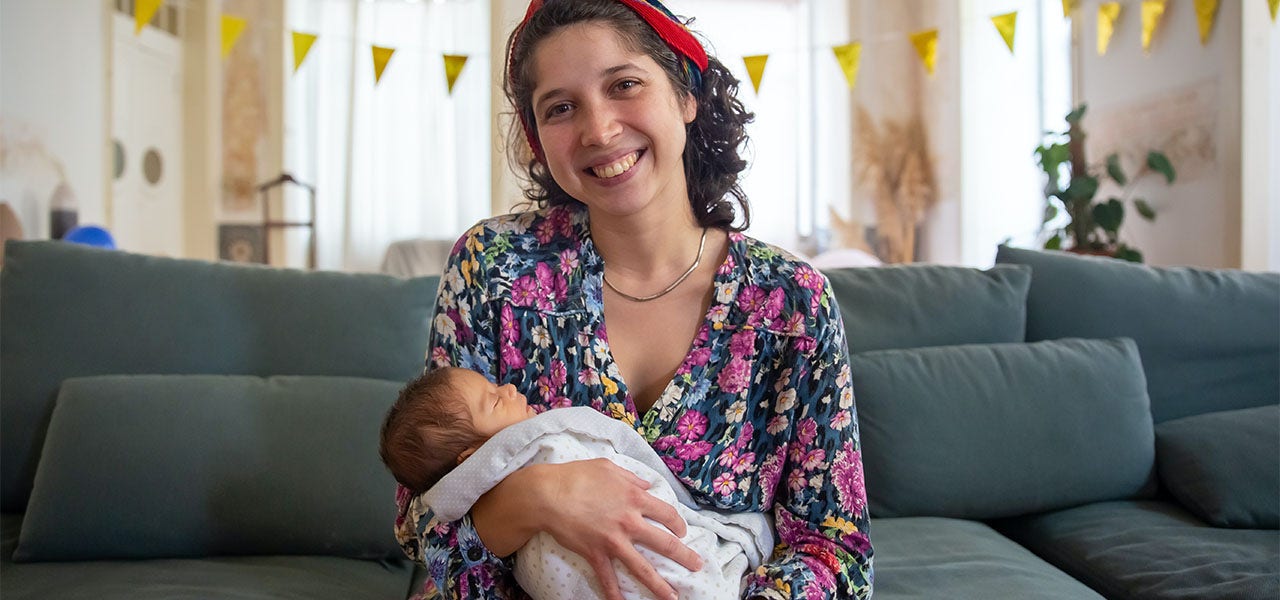I have finally found the nursing pillow that is “the one” for me, and the prize has been worth the wait.
I’m a big believer that there’s nothing truly “essential” required for a successful lactation journey. As long as everything is working well (and it doesn’t always), body feeding is pretty much “have baby, feed baby.” Generally that works, and that’s all that is truly required.
However, there are certainly items that make the lactation journey easier, more comfortable or even more possible, for some. To me, a good nursing pillow is one of those – really, really, really helpful.
Benefits of Using a Lactation Support Pillow
Using a nursing pillow for lactation support can provide numerous benefits for both new parents and their babies. Firstly, nursing pillows are designed to offer optimal support and comfort during breastfeeding sessions. They help position the baby at the correct height and angle for a latch, reducing strain on the mother's back, neck and shoulders.
This added support is especially beneficial during the early postpartum period when mothers may be recovering from childbirth and experiencing soreness. By promoting better posture and reducing discomfort, nursing pillows can encourage more relaxed and longer breastfeeding sessions, which can aid in milk supply and overall infant health.
Additionally, the close proximity and ergonomic positioning facilitated by these pillows make it easier for mothers to maintain eye contact and engage in skin-to-skin contact with their infants while nursing.
Developing the Naturepedic Nursing Pillow


What makes for a “good nursing pillow” can be unique and varied from person to person. Which is why I am so grateful for how Naturepedic approached the design of their brand new Organic Cotton/PLA Nursing Pillow.
Not only did they want to hear from me and my experience as a lactating parent and lactation educator, they also wanted to hear from experts such as:
- International Board Certified Lactation Consultants (IBCLCs)
- Current new lactating parents
- Experienced lactating parents
- Labor and delivery nurses
- Midwives
Naturepedic wanted to hear from people with all types of bodies, all types of feeding journeys and all types of needs, too!
Working with the product designers, we set out to create a pillow that would work for “most” if not all. We humbly recognized that as much as we would have liked to design a pillow with all of the features everyone wanted, we would be happy to have something that checks as many of the boxes as possible.
The process took over a year and a half. The Naturepedic team could have rushed through the design and testing phase to just get something on the market, but they didn’t. Instead, they listened to people who would actually be using the nursing pillow, reworking the design until they had something that felt just right.
Naturepedic’s Organic Nursing Pillow Checks All the Boxes


Just like anything we buy for our babies, we want our nursing pillow to be comfortable and safe above all else. In my own breastfeeding journey, I have found searching for the right nursing pillow to be a holy grail of a quest. Through eight babies of my own (and countless others as a birth worker and lactation educator), I have come close. But until now, nothing has checked all of my boxes.
The Naturepedic Organic Cotton/PLA Nursing Pillow feels just right – I know I have finally found “the one.” (And it only took 24 years, eight babies of my own, supporting thousands of others and trying nearly every pillow out there.) Here’s what I love about it.
Healthier Materials
First and foremost, the Naturepedic Organic Cotton/PLA Nursing pillow is made from safer, healthier materials. Reputable third-party organizations such as MADE SAFE®, GREENGUARD® Gold and UL have vetted this product to make sure it doesn’t contain or off-gas their lists of chemicals linked with health concerns. It’s also vegan, if that’s important to you.
Instead of polyurethane foam or polyester batting and synthetic fabrics, the pillow is filled with PLA, which is plant-based and non-GMO, and is encased in breathable, GOTS certified organic cotton.
Safer Support
What truly sets this nursing pillow apart compared to other non-toxic options on the market is the fact that it holds its intentional shape. The nursing pillow offers comforting support without sinking or flattening. This is HUGE in the nursing pillow world! It’s very hard to find a support pillow that doesn’t dip in the middle or lose shape. It's designed with tummy-to-tummy positioning in mind, providing gentle comfort around the midsection for postpartum healing (including surgical recovery).
Size-inclusive Design
I had a whole team of testers play around with Naturepedic’s nursing pillow and compare it to others. We found that many options on the market were not a comfortable fit for people above a women’s size 14-ish. The Naturepedic support pillow, on the other hand, accommodated a much wider and more realistic size range. As Naturepedic says, it’s made for “every baby, every body.”


Practical Waterproofing
Naturepedic gets it, parents – lactation is messy, babies are messy and, oh, parenthood is messy! The Naturepedic Organic Cotton/PLA Nursing Pillow features a waterproof cover to prevent spills, stains and messes from contaminating the pillow’s core. The cover is machine washable and dryable, too, ensuring easy maintenance and cleanliness.
Bonus: the snug, well-fitting cover is really soft and gentle on sensitive skin, too.
The Bottom Line this Lactation Support Pillow
As much as I want to tell every parent that body feeding is going to be easy and perfect, sometimes it isn’t! The same is true here – I’d love to tell you that this is the perfect nursing pillow for you, but we’re all on our own journeys. You’ll have to try it, and see for yourself. I will say that this is the pillow I’ve been looking for all these years, and I’m excited to share it with you.
The incredible team at Naturepedic made it possible. I’m grateful for their commitment and dedication in listening to so many of us who have fed babies, are feeding babies, and support and educate others in feeding their babies.
 BABY
BABY  KIDS
KIDS  ADULT
ADULT  LEARN
LEARN  STORES
STORES 

